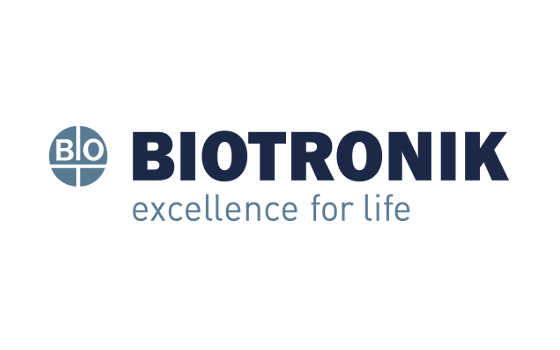 BIOTRONIK has announced first enrollment in a multicenter study that aims to demonstrate that a two-lead cardiac resynchronization therapy (CRT) system with atrial sensing is at least as effective as a conventional three-lead system. BIOTRONIK's CRT-DX technology provides therapy through two ventricular leads and features a floating dipole for complete atrial diagnostics without an additional lead. The study is sponsored by the Italian patient organization 'Associazione Portatori Dispositivi Impiantabili Cardiaci' (Association of Implantable Cardiac Devices Patients, APDIC).
BIOTRONIK has announced first enrollment in a multicenter study that aims to demonstrate that a two-lead cardiac resynchronization therapy (CRT) system with atrial sensing is at least as effective as a conventional three-lead system. BIOTRONIK's CRT-DX technology provides therapy through two ventricular leads and features a floating dipole for complete atrial diagnostics without an additional lead. The study is sponsored by the Italian patient organization 'Associazione Portatori Dispositivi Impiantabili Cardiaci' (Association of Implantable Cardiac Devices Patients, APDIC).
"We are proud to be a volunteer association that has become a promoter of CRT," said Dr. Armando Luisi, president of APDIC. "Regardless of the outcome of the CRT-Next study, the findings will be useful to improve the quality of life of patients who need CRT devices."
As CRT-D patients are exposed to a higher risk of complication compared to other cardiac implantable electronic device (CIED) patients, managing risk is important. The CRT-DX system offers AV-synchronous CRT pacing without a separate atrial lead for patients not requiring atrial pacing. In reducing system complexity by eliminating the atrial lead, the CRT-DX system is designed to lower the risk of lead-related adverse events.
"This study was initiated to respond to a specific patient need: to benefit the most from the therapies available with the least risk of adverse events," reported Dr. Mauro Biffi, chief investigator of the Policlinico Sant'Orsola Malpighi, Bologna, Italy, and coordinator of the study, after implanting the novel CRT-DX system in the first patient in the CRT-Next study. "Each patient receives everything that is needed for clinical improvement while avoiding lead redundancy which can cause unfavorable problems. In Italy, this is the first clinical study in the field of implantable devices that is promoted by a non-profit association working in the interest of patients. The study reflects the solid cooperation that can be established between healthcare professionals when the objectives are clear and aim at improving care and quality of life."
The CRT-Next study is being conducted in twenty Italian centers. It enrolls 640 patients with optimized therapy for heart failure with an indication for the implantation of a CRT device.
"The technology impact for patients with heart failure and indication for a CRT-DX device can be significantly improved with the CRT-NEXT study," said Dr. Gabriele Zanotto, Head of the Unit of Pacing and Electrophysiology at the Mater Salutis Hospital in Legnago, Italy, who recently enrolled his first patient in the study. "The possibility to demonstrate that we can reduce complications in these patients is the essence of this study. We have full confidence in its scientific impact."
About BIOTRONIK
BIOTRONIK is a leading medical device company that has been developing trusted and innovative cardiovascular and endovascular solutions for more than 50 years. Driven by a purpose to perfectly match technology with the human body, BIOTRONIK innovations deliver care that saves and improves the lives of millions diagnosed with heart and blood vessel diseases every year. BIOTRONIK is headquartered in Berlin, Germany, and represented in over 100 countries.